Nigeria: The Call for a Culture Shift
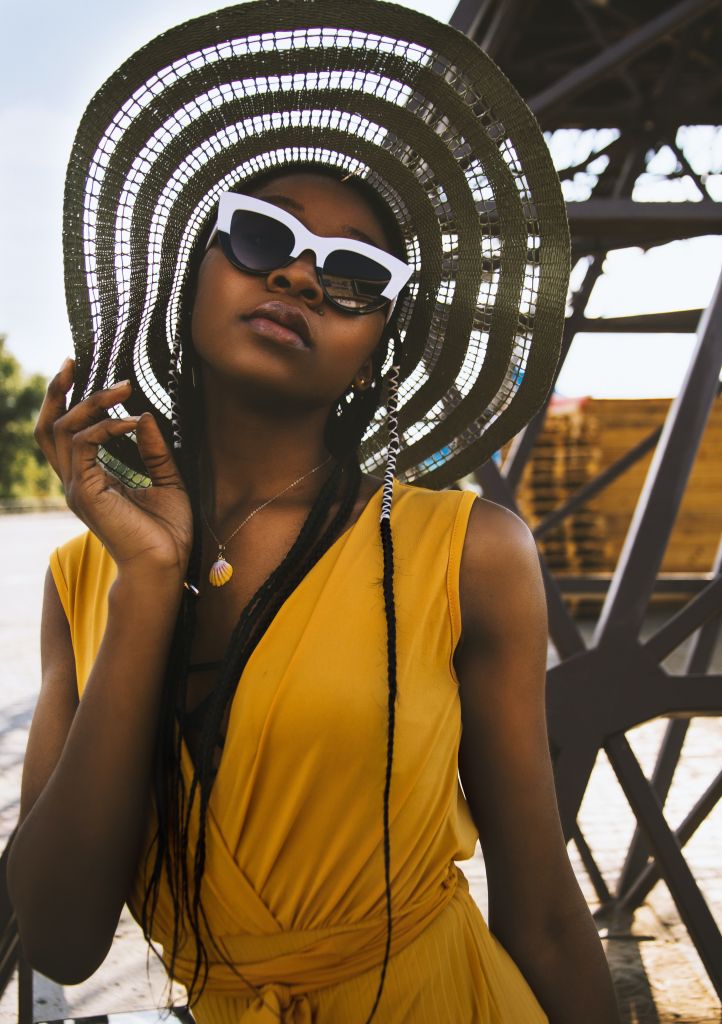
Samuel Phillips is a writer, graphic designer, photographer, songwriter, singer…
Whoever controls the images, controls your self-esteem and self-development. Whoever controls the history, controls the vision –
Dr. Leonard Jeffries
In as much as I would like to one day be able to use the name Afrikan on my documents, instead of just Nigerian, where I am from, I will today speak to my Nigerian brothers, sisters, mothers and fathers, as a Nigerian.
Clearly, my words will hurt some people who will see this as backlash, it may offend some who think no one has the right to talk about the good of Nigerians and to some, my words will be what can help them see a new side of how to be true Nigerians.
I am not one that sits on my behind watching things go the wrong way and then keeps silent about how to make amends. But as always, I will not try to make corrections without the spirit of compassion and love. For I believe that it is only a fool that corrects in others what he thinks he knows about them, yet without the spirit of love, compassion and kindness that will help him see clearly in order to make accurate judgment. For even Jesus said that each man must remove the log in their own eyes in order to see clearly to remove the speck in the eyes of others.
The Nigerian story
They say that when the purpose of a thing is not known, abuse becomes inevitable. This has always been the case both with material things and even between people.
I do not need any permission from anyone both to know and also to boldly say that to be a Nigerian is one of the most honorable thing bestowed upon the people of that land. Not as it relates to Nigeria as a name (whose meaning is not so great) but as a reality of the true Nigeria, that is, those whose purpose is to spearhead both spiritual and physical things in Afrika and beyond. So I will both speak to the Nigeria that is a name, which has been tarnished globally by all manner of criminal attribute, through the various nefarious activities of some Nigerians. I will also speak to the Nigeria that is a reality in the hand of God which was given the mandate to trigger and spearhead great things in Afrika and beyond. But in both cases, I am also speaking to all Afrikans both home and abroad. For we all know that, even though the name Nigeria is sweet in the mouth of many people in regard to crime, crime is not unique to Nigerians, but to all who by their own choices, commit crime.
The narrative of criminal Nigerians
As a Nigerian myself and one who grew up in Nigeria, I have never been involved in any form of crime or criminality. I have never smoked any kind of thing people smoke, never been to night clubs or brothels, I don’t know what cocaine, heroine or any other drugs look like, except for maybe as I see it in movies. I have never had any reason to fight anyone on the streets. In fact, almost never had any reason to get into the normal sibling fights with my brothers while growing up. I have never stolen anybody’s property or maliciously destroyed other people’s things for whatever reason. I have lived my entire forty-something years life within the ideals, honor and integrity instilled into me by my late Pastor Dad and my retired School Teacher Mum. So you will understand my pain and discomfort when I get to an airport while on a trip and then the immigration officials or customs officers see my green passport and then instantly think there must be some criminal thing in me because my passport says NIGERIA.
You can’t understand how embarrassed that makes you feel inside to know that someone who has no clue about who you are, where you have been, what you do, what your ideology about life is, upon seeing you for the first time, thinks you are a criminal simply because you are from a particular country called Nigeria in Afrika. Nothing stabs a precious heart more than that.
In fact, it becomes even more annoying and painful when God sends you as His servant to go to an Afrikan country to declare a word for Him over that nation and then you are still treated as a criminal at the borders simply because your passport says Nigeria.
Oh my goodness! I cannot begin to tell you how many times, because of how I was treated maliciously at airports that I felt like the three disciples of Jesus who wanted to call down fire against Samaria, because they were not received as servants of Jesus. But clearly, I am of a different spirit.
But the question is this. Why and where did this stench called CRIME come to be attributed to Nigerians and how many of the stories are actually true?
I do not know its beginning nor how it escalated to become what it is today, but I do know that a hundred nations and more of the world cannot be wrong about the criminal activities of some Nigerians… and I also know that it is not possible for all Nigerians to be criminals. If that were not so, there wouldn’t be the massive numbers of Nigerians that are scientists, medical doctors, tech gurus, CEOs, lawyers, artistes etc, all doing great things all over the world.
Personally, I think that a large amount of the criminal narrative about Nigerians is over-exaggerated. I will try and share a few things here about my own personal experience at the hands of those who think being Nigerian means crime.
However, before I do that, I will cast some of the blame for the wrong narrative about Nigerians on Nollywood and even the media for some of these errors in mindset. Why?
As Nollywood and even local individual content creators in Nigeria, you cannot base most of your local movies and content about Nigerians around internet fraud, money rituals, drugs, corruption, get-rich-quick schemes and then expect the world to see Nigerians differently from what you showed them. The question is this, when will the movies and content you create be about the great Nigerians that are doing great things both within Nigeria and abroad? To me, I think we have somehow perfected how to celebrate and reward foolishness more than we celebrate and reward integrity and hard-work. But I will get to this shortly.
I was reading a post by an Afrikan called Rutendo Mantinyarare on Facebook. He is a Zimbabwean social activist and we have featured a couple of his articles on this magazine and also have had a video interview with him about the state of Afrika.
In his Facebook post, he was talking about Nigerians and crime. He made mention of several instances where he was told about the crimes committed by Nigerians when he went overseas or something to that effect. Sincerely speaking, I am ok with the call out which he did even though I do not consider his words as wise rebuke for change, but more as a cheap shot at Nigerians. I got upset with his writing because he used words and statements that were not only derogatory of the entire nation of Nigeria as a people, which is a mindless salvo at the very core of the united Afrika that all Pan-Afrikanists are working towards.
And mind you, this article is not about Rutendo and whatever he wrote, but about how to look into the Nigerian crime narrative and see just maybe something very different can be attained.
Personally, I am very ok with anyone calling out the Nigerians that are involved in crime, whose criminal activities for me personally are a dirty stain on the Afrikan Brand. And that’s because I am game with anyone who is bold enough to face evil head on and call it out, especially among brothers. But one thing that puts me off with such posts and which many Afrikan writers still erroneously do, is to make blanket statements just to justify what they think they knew about a person or a people.
And also, to call out the evil of your Afrikan brothers and then not give counsel about how to make changes is for me the most mindless thing to do. In fact, for me, it’s not only shameful but useless for anyone to call out the flaws of supposed brothers or anyone else, close their eyes to the good things about them and then also not counsel them on how to be better. Why is this an issue? We cannot change in others what we ourselves are not ready to deal with both in ourselves and in the people we are trying to change. And most of the time, what we passionately hate and talk against in others are just the reflection of the state of our own hearts.
Pulling each other down, calling out each other without true correction and the intention to make change because we think we are more holy than those we call out, is the narrative the globalists want to keep going concerning Afrika and we as Afrikans are handing them the very tools they need to do it with.
I am completely against Crime
I cannot say this enough. I am completely against any form of crime in whatever form or shape. Among Nigerians, Zimbabweans, Kenyans, Somalis, South Afrikans or whatever other Afrikan nation. It is a stench in the nostrils of God and wickedness before humanity.
And any Nigerian or Afrikan involved in crime both at home and abroad should be dealt with according to the law of the land in which the crime was committed. This is my stand on crime and criminality.
Nigerians are some of the brightest and smartest scientists, bankers, techies, artistes, entrepreneurs, writers, athletes, creatives, fashion moguls, businessmen in Afrika and the world over.
Samuel Phllips
What about the good Nigerians?
When you hear people, media or even the movies talk about Nigerians in relation to criminal activities, you would think nothing good is happening with Nigerians wherever they may be. The level of misconception about the Nigerian narrative is so huge that sometimes it’s hard to know where to begin to dislodge those misconceptions.
I will not be able to give all that is required to deal with this issue, but let me share a very few things here about the beauty of Nigerians that most people don’t know or just don’t want to know and accept.
According to the Mo Ibrahim Foundation, there are more than 4,000 Nigerian medical doctors in the US and about 5,000 in the UK alone. I am not talking about Nigerians born in these countries, but those who migrated from Nigeria to these countries.
According to imdiversity.com, Today, 29 percent of Nigerian-Americans over the age of 25 hold a graduate degree, compared to 11 percent of the overall US. population, according to the Migrations Policy Institute. Among Nigerian-American professionals, 45 percent work in education services, the 2016 American Community Survey found, and many are professors at top universities.
Nigeria’s Nollywood is the second largest movie sector in the world and accounts for about 5percent of Nigeria’s GDP
Some of the world’s greatest music super stars both in the gospel and secular music sector are Nigerians or of Nigerian descent. Meaning that some of the most popular songs on your phones, even as you read this article, are likely from Nigerian music artistes.
Some of the richest Afrikans in the world are Nigerians.
According to CNN Travel, for all its political and economic troubles, Nigerians are somehow still among the most optimistic and happy people on the planet. For a Nigerian, there is no room for despair and downtime. And this excitement and spirit of positivity many also have been misconstrued to mean “pride”, “loudness”, “crudeness”, “chaos” and “disorderliness”. I call these misconstrued notions about Nigerians because I am Nigerian and I have seen, in Kenya where I live, how people just decide you are “loud” or “disorderly” or “crude” simply because you explain your point with so much excitement and positiveness, you bring in new perspective to the already established norms, which many Kenyans do not like and you eat your chicken to the bone. But how that amounts to being crime is what no one has explained.
Nigerians are some of the brightest and smartest scientists, bankers, techies, artistes, entrepreneurs, writers, athletes, creatives, fashion moguls, businessmen in Afrika and the world over. Google can help you with this.
The question now is this, with all these amazing things that are happening with Nigerians all over the world (and I haven’t included many positive examples), why are people blind to it and why is the general narrative that of crime and what can be done about it?
Maybe these little thoughts of mine can help.
What you constantly speak about and constantly show to the world will be what they will know about you and will also be what you will come to accept as your own reality, howbeit, it may not be true. If Nollywood and local content creators in Nigeria can change the direction of their stories from the exaggerated negative things they show, to portray more positive aspects of the Nigerian life, then perspectives can begin to change and also shift. For example, I dislike watching any movies featuring this popular Nigerian actress called Mama G (Patience Ozokwo). Why? She has acted the role of a wicked mother-in-law so much, that I began to see her as what she has been acting. A wicked woman. You see what I mean? But is she a wicked woman or wicked mother-in-law in real life? I do not think so. Same goes for anything you consistently portray, it somehow becomes your reality, even when it may not be true.
The globalists know that the one way to keep Afrika in a negative spin is to keep the negative narrative about Afrika going on. And they also know that the influence of Nigeria in Afrika is massive and thus if they can control the Nigerian narrative with the story of crime, then Afrika can always be in a negative spin.
People always believe what they wish to believe and what is convenient to sustain such beliefs. And if you ask me, negative stories sell much “better”. If you doubt me, ask CNN and BBC and even some of our local media. For clearly, they did not cover the EndSars protests in Nigeria when they were peaceful, but when paid thugs took over and started causing mayhem, they were the first to make the announcement. Same thing they do all over Afrika and the nations they consider underdeveloped. If you want to see how true what I am saying is, you certainly will see. You just need to open your eyes.
Just maybe it makes some people feel good and holy to call out the sins of others. Or just maybe some people feel that by running others down, they will have automatic ladders to climb to the top. I really can’t tell. But I have seen this also.
Maybe the crime rate is as what has been spoken of. I seriously doubt that though.
I read a lot of stuff here and there because of this magazine and my other writings.
A while ago I read an article in a Kenyan magazine (name withheld) where the author was narrating some things about his trip to Nigeria. He said all manner of things about Nigeria, disdaining words about the public bus he used which broke down on his way to the airport, how he could not get money from the ATM machine with his credit card, how he missed his flight because there were some issues with his ticket or so. He rained all manner of insults on Nigeria and Nigerians. But he was also “sincere” to mention what really happened which were all his own fault. Concerning his flight ticket, his office in Nairobi made some mistakes or something like that, so the airline’s system did not recognize his ticket. Concerning his credit card, he did not alert his bank in Nairobi that he was traveling, so he could not use it. But who did he insult and called useless for his woes? Nigeria and Nigerians. In fact, the article was titled “Lagos woes”.
You see what I mean? Let me ask you, is it a crime for a public bus to break down on the road? I live in Nairobi and I see matatus (public buses) break down frequently. So why is that of Nigeria different? People only see and blame what they want to see and blame.
My personal experience
I am not writing this part of this article to call out anyone, but to make someone understand that when I say people just see and blame what they want to see and blame, I know what I am talking about. The story is long but I will bring out the main points.
Sometime in 2018, my wife and I were arrested at our home in Nairobi. In fact, I was the one the police came for, but she joined me in the arrest. You know, seeing police men enter your compound with guns and with no warrant can be quite shocking. They confiscated our phones and laptop and those of our hosts and my passport. Anyway, we drove to the police station (accompanied by a police officer) even though the policemen kept saying that we were not under arrest and even though they came in two police vans. We got to the station and the OCPD (Officer in charge of Police Department) was saying all manner of things and threatening to deport me. I was just looking calmly at him without saying a word. I had another phone with me, so we sent an SMS to one of our brothers who is a lawyer while we waited to know what the issue was. I asked the OCPD why I had been arrested. He said that someone reported that I was involved in terrorism, money laundering and internet fraud. I laughed. He was very surprised that while he was reading his charges, I was busy laughing. Eventually, for whatever reason, they decided to lock us up and we had to spend the night in the police cell, which was the very first time in both of our entire lives. It was such an unusual situation that the officer who wrote the booking sheet was asking us what the charge against us was that we were to be locked up for – we told him over and over again that we had not been charged with anything and that no one was telling us why we were being held. Frustrated, and somewhat irritated, he wrote something down for the sake of it, because – as he pointed out – we could not be held without charge.
But, as God would have it, I became the pastor praying for the guys I met in the cell who were going to the court the next morning, while my wife was busy having a prayer and worship session with the women in the women’s cell she was taken to. It became a good avenue to minister hope to the people we met in the police cell. And to learn a few things about what goes on sometimes, behind the scenes.
Our brother (lawyer) came the next morning and because the law does not permit the police to keep us for more than twenty-four hours without any charges, we were asked to go home but to keep reporting to the police station for the next two weeks, while whatever investigation they were doing was done. Before leaving the station I asked the OCPD again why I was arrested and who called for my arrest. He said he did not know and even went ahead to deny accusing me of terrorism and all the other accusations they had so boldly spoken of the day before. He told me to my face right there that he was not the one who asked his boys to arrest me. Which was very surprising to me because he was the one we were taken to the moment we got to the station. I went to the OCS (Officer in Charge of Station) to ask the same question. He said the very same thing that he was not aware of who had called for my arrest. It was like magic. Every police officer in that section of the station denied having any knowledge of who had called for our arrest or why. Someone overheard one of the policemen that came to our house for the arrest saying that it was a malicious report from someone who hated the fact that I am Nigerian.
So you see how the story played out? We later understood that the so called “someone” who made the report was actually a group of seniors (I mean, men and women who are above sixty) who came together and plotted for my arrest. What was my offence? I am Nigerian or whatever else they think I did to them.
Imagine how many innocent Nigerians have had malicious allegations leveled against them globally, simply because it makes sense to some people to do so. Just like the story of Amy Cooper, who called the police on a black man named Christian Cooper, who was bird watching in a park, simply because the black man asked her to leash her dog. The question is, why would she think it was ok to do that? She must be aware that a deep stereotype was already in place against all blacks and that the white police men would respond to her call to come arrest a “criminal black man”. So when you hear talk about Nigerians and crime, please do your research to know what is true or lies. There is a deep stereotype already in place.
What is Culture?
According to an online source, culture is the ideas, customs, and social behavior of a particular people or society.
From this definition of culture, let us look a bit further at some societal ideologies that Nigerians portray and which have somehow created some aspect of the negative image that has become the pain of the average Nigerian. I will only share a few below that are within my reach right now.
Some Nigerian cultures
Traveling overseas (Europe and America mostly) has somehow become a goldmine for an average Nigerian. And not necessarily for any criminal activities, but for the proverbial greener pastures. This may look obvious as it concerns even all Afrikans, but I think Nigerians take it a little bit closer to heart than most Afrikans. Why? There is this underlying quest to alleviate the poverty of immediate family members. And somehow, the closest thing possible to do for a young Nigerian whose hope of getting a good job that fits what he or she studied in school, or their passion is not possible in a Nigerian economy that is not doing so well like many Afrikan countries. The solution, therefore, is to travel abroad. And because there are a lot of family entanglements and emotions attached to those journeys abroad, some of these young Nigerians, when they realized that there are no greener pastures in the countries they moved to, sometimes get involved in crime just to meet family expectations back at home. However, this reality is not an excuse for crime.
This may not totally be accurate at all levels, but in Nigeria, it’s easy to get pressurized by family members to get married once a person hits their thirtieth birthday, which is why barely a week goes by without someone staging a traditional wedding ceremony somewhere. Weddings are a sacred part of Nigeria’s cultural life, but also an excuse to show off cuisine, fabulous clothing, music and dance moves in one life-affirming, chromatic bonanza. Imagine the amount of pressure this weird culture puts on a young Nigerian man or woman and the financial burdens that are incurred. And because such parties can be very expensive, people tend to easily think the funding comes from the proceeds of crime.
The average Nigerian does not run away from challenges and oppressive tendencies from others. Nigerians will not put their heads under your feet to step on, no matter who you are and what you do. So you may be right to say they are “loud” and that’s because they do not shy away from challenging the status quo and they will do so with all the passion and strength they have. This also does not need to be done without civility.
Nigerians have the tendency to bring fresh perspectives to established norms and by this act, many call them unruly. Creativity is endemic with Afrikans and Nigerians don’t come last in this creative drive for excellence. You may like them or you may not like them, but a creative Nigerian will definitely let you know to your face that you are not doing great with your act, if truly you are not. But mind you, they do not mind teaching you all they know just so you do well like they do. This also, is not an excuse to not be respectful to other people’s opinion.
I remember the first time I asked my wife that we try a different style of making chapati. I am not sure I remember clearly how that went.
A Nigerian will naturally defend what he or she believes in irrespective of what you think. And this may mean defending a friend, both local or foreign. And if they have to break the common rule to do this, they will without blinking an eyelid. If this is what people call chaotic, I do not know.
I have heard and seen many talk bad of Nigerians because of their accent, even among Afrikans. And I sometimes wonder how foolish that is really. It boggles my mind that Afrikans who are not Nigerians think it’s ok for a Chinese to speak English like a Chinese. It’s ok for a Briton, who is an Englishman to speak his English different from the way Americans speak English. That is it ok for a French man to not ever speak English and still be called literate. But it’s not ok for a Kenyan from the Kikuyu tribe to speak English as a Kikuyu from Kenya and when a Nigerian speaks English as a Nigerian, he or she is called illiterate. Let me ask you, do you know how many tribes, dialects are in Nigeria? Find out for yourself and then you will see the foolishness of wanting Nigerians to speak English like British English speakers.
I have seen a lot of pride and prejudices among Kenyans towards Nigerains during my stay in this country. Imagine a Kenyan telling you how illiterate and what poor English speakers Nigerians are when right beside him there is a Kenyan who only speaks Swahili or Swahili-accented English. Come on guys, how low can we go to prove how mindless we can be sometimes?
It confounds my imagination when a Kenyan says Nigerians are criminals and yet seventy percent of the music in his phone, both gospel and secular, is from Nigeria. You accept the Nigerian music, use it in your church services every Sunday morning, watch in your homes every movie from Nollywood, in fact you know Nigeria more than Nigerians because of the Nollywood movies you watch and then turn back to say Nigerians are criminals. Are you kidding yourself?
A new Nigerian culture?
Sometimes it’s very hard to change the common culture and norms of a people, especially when such people are not all out to make such changes.
In this case, I am not saying Nigerians are not all out to make changes to whatever it is that is not accurate in the public image, but that sometimes, it’s even hard to tell when someone is already musing change and how best to lend a helping hand.
There are things that certainly should be changed in the Nigerian social narrative, but there are a lot more that must be given the accurate strength to thrive. For instance, I will not agree for anyone to talk about changing the boldness and confidence of the average Nigerian simply because it makes someone else feel uncomfortable or simply because it makes others feel pressured to up their game. Is it not even pride for anyone to hate the very person that is putting pressure on them to do better? I think it is, as a matter of fact.
So concerning whatever is it that has to be changed in the Nigerian narrative, I think EndSars Movement has given a very good intro to what new direction Nigeria is going. It may not be visible right now, but it will happen and very soon.
I also think it’s time Nigerians and even the entire Afrika as a whole to began to celebrate the beautiful things about themselves and then watch how the negatives will naturally die away. There is good and bad in every one of us, but what we feed is what grows.
The good side of the stereotype
It is very clear to me that Nigerians have become victims of stereotyping both within Afrika and outside of Afrika.
But as a positive thinker, here is what I think is also happening to the Nigerians and which I believe is a good thing. There is what happens to the mind of a person or people who have been unjustly stereotyped. They begin to work harder than others to prove themselves contrary to what others think about them. And because natural laws say what a man sows he reaps, it has become easy for Nigerians to top their game, because they find themselves in the place where they work doubly hard to erase stereotypes and by that they always stand out. You do not have to look too far to see this reality playing out.
What others think
I am very glad to know that the quest to retell the Nigerian story is not just coming from me alone. Others are beginning to see what is true and real about the Nigerian narrative and are lending their voices to the same.
So before I leave you, let me share an excerpt from an article published in the Daily Nation and written by Prof MakauMutua, a Kenyan Professor of law.
” I love Nigeria and Nigerians. I know I may be in the minority, but if so, then I am in a very proud minority. Like most Black nationalities, Nigerians are the victims of vicious stereotypes and racist tropes…
We – Black people – need to look deeply into our souls and expunge, or excrete if you will, our bilious hatred of Nigerians. Then gang up on Whites and Asians to force them to respect the humanity and dignity of Nigerians – and Nigeria, the African global giant.
I am sick of all Nigerian ethnic and racist tropes. “Nigerians are born thieves.” “Nigerians are congenital conmen.” “Nigerians are inherently cheats.” “Nigerians are unreliable, shifty, violent, pushy, loud, uncontrollable.” I have even heard it said that Nigerians are inherently anti-democratic and autocratic…
Finally, he said
“Nigeria played a key role in pushing China to stem racist attacks against Africans in Wuhan and other cities. The image of the Nigerian diplomat loudly berating Chinese officials is one for the ages.
While Ambassador Sarah Serem of Kenya was cowering somewhere in Beijing tongue-tied and unwilling to confront the Chinese, the Nigerian diplomats protested without fear.
Those are the Nigerians I know. They will defend another Black person anywhere without fear and damn the consequences. I saw it at JFK in New York where a Nigerian was almost arrested for defending a Black woman who was being harassed by a screening agent.
That’s why Nigeria, not South Africa, is Africa’s giant.”
It’s a personal choice after all
The choice to be the best we can be can only be personal. No one can make such choice for another. And that’s why parents get the shocks of their lives when the kids that they raised with good principles turn out to be far from what they expect. The kids simply made their choices, howbeit, a good foundation for children is still the best way to go.
So, I choose to represent the Nigerian and Afrikan image in good light and by that I take it upon myself each day to live right. So it’s your choice to make, either to see yourself as a Nigerian, or if not, to see Nigerians and your other Afrikan brothers in good light or not. After all, we are on the inside the very thing we hate or love on the outside. And to him who is pure within, all things are pure without.
Hotep.
What's Your Reaction?
Samuel Phillips is a writer, graphic designer, photographer, songwriter, singer and a lover of God. As an Afrikan content creator, he is passionate about creating a better image and positive narrative about Afrika and Afrikans. He is a true Afrikan who believes that the true potential of Afrika and Afrikans can manifest through God and accurate collaborations between Afrikans. Afrika is the land of kings, emperors, original wisdom, ancient civilizations, great men and women and not some road-side-aid-begging poor third world continent that the world finds joy in undermining.









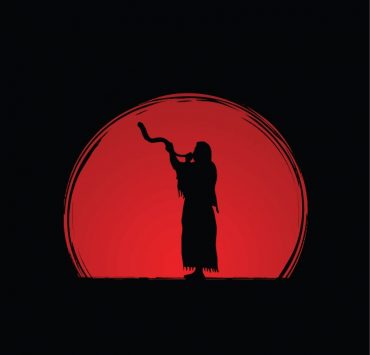
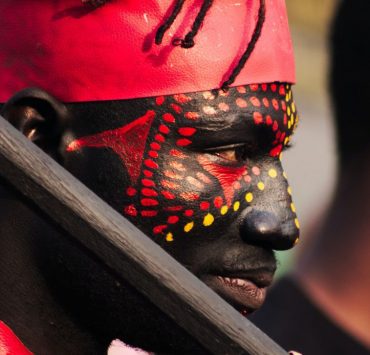



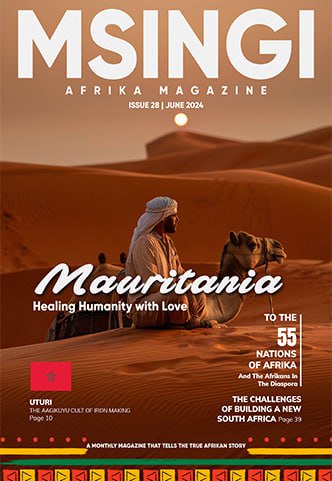
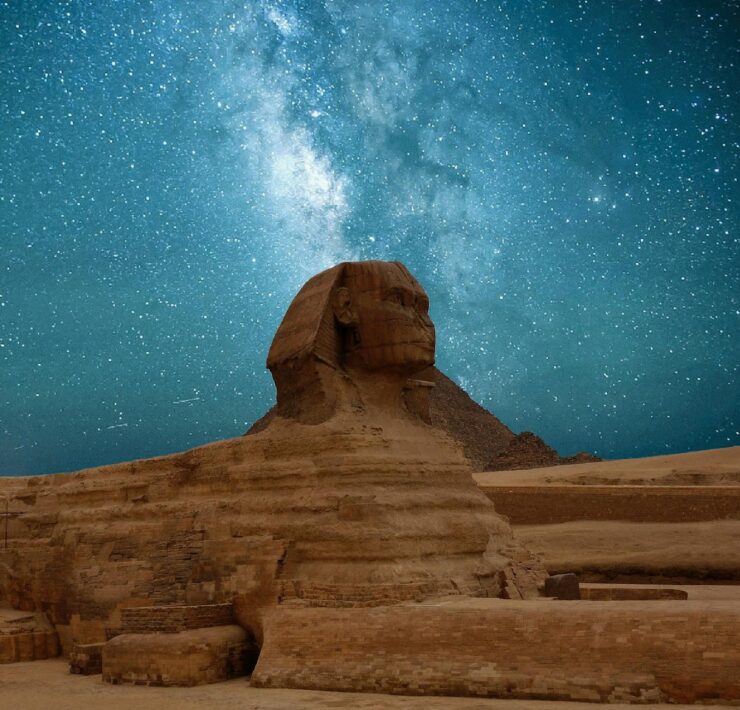


An insightful read